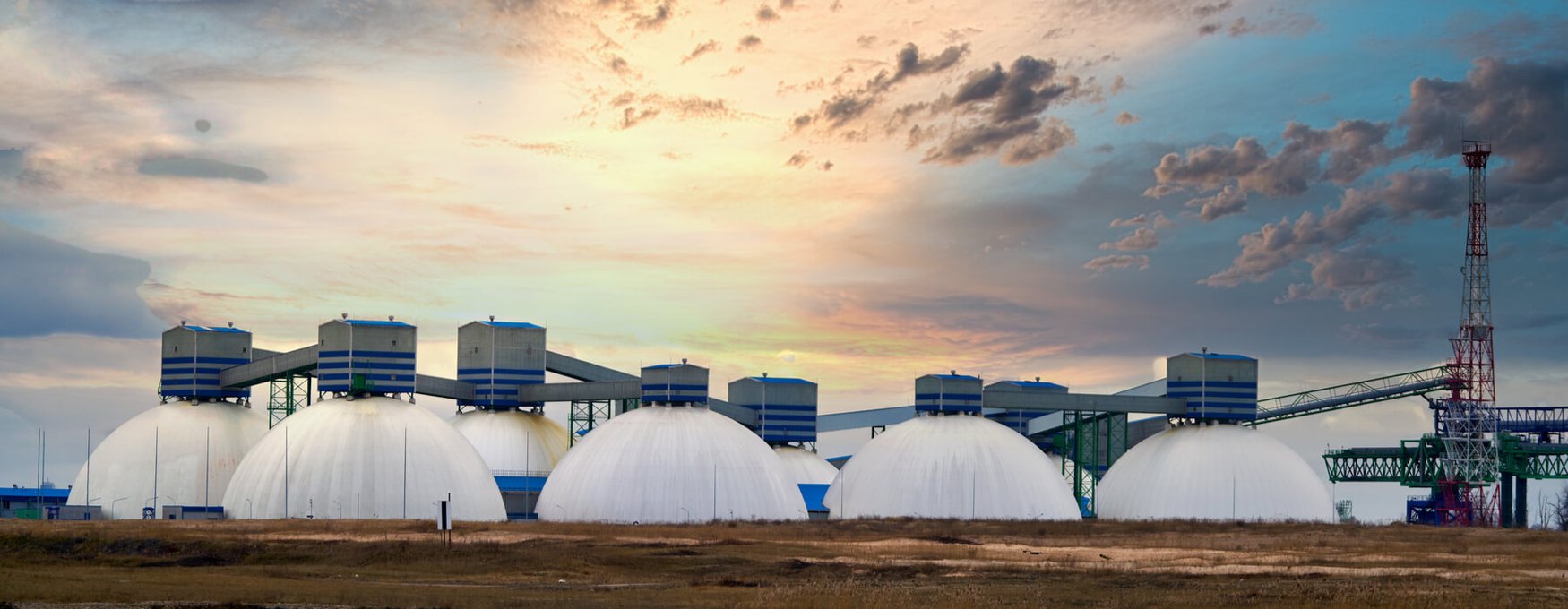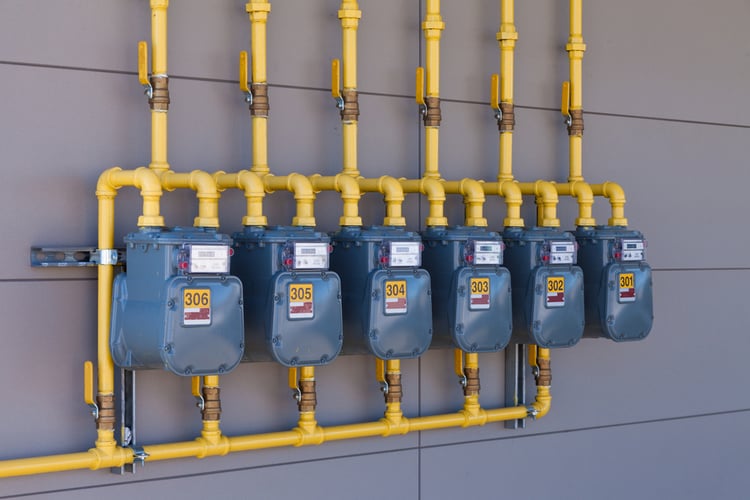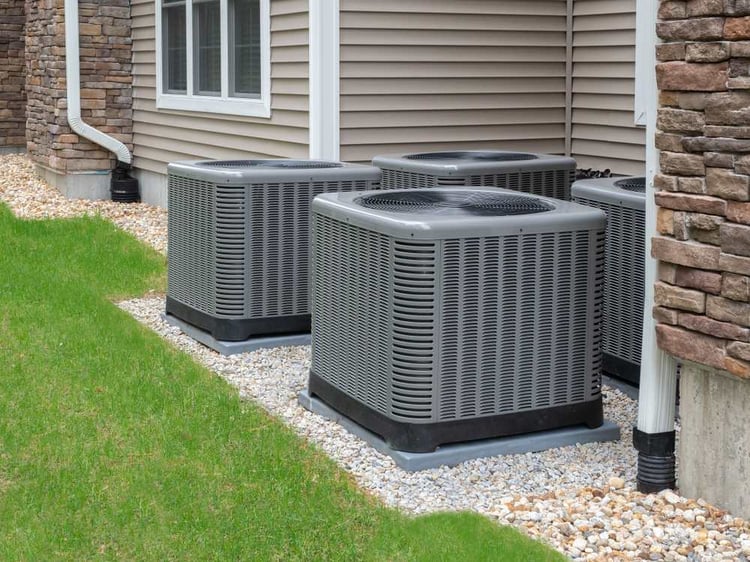Expensive Natural Gas: How Building Owners Can Mitigate Energy Costs

Buildings rely on natural gas for their space heating and cooling needs all year long. Gas is used directly by furnaces and boilers during winter, and indirectly by air conditioners during summer, since it generates a large fraction of their electricity. When natural gas prices are high, there is an impact on building energy costs all year long.
As of May 2022, natural gas futures are trading above $7 per million BTU, which represents a drastic increase from one year ago, when gas futures were trading at around $3 per million BTU. The high price of natural gas can be attributed in great part to the ongoing conflict between Russia and Ukraine, which has disrupted Russian fuel exports to the European Union. Europe has been purchasing liquefied natural gas from other sources, including the US, and high demand is driving up prices in the domestic market.
Get a professional energy audit and cut your gas and electricity bills.
Buildings are susceptible to high gas prices, since they depend on the fuel all year long, directly or indirectly. However, this also means that energy efficiency measures and renewable generation can achieve greater savings. An increase in gas and electricity prices is bad news for building owners who rely 100% on utility services, but efficient buildings are saving more compared with one year ago.
New York State Outlook: Gas and Electricity Prices

The state of New York is characterized by above-average electricity prices, and this trend is evident with current inflation rates. According to the US Energy Information Administration, the average kilowatt-hour price for the NY residential sector increased from 18.78 cents/kWh to 21.58/kWh cents between February 2021 and February 2022. In the commercial sector, the average price increased from 15.22 cents/kWh to 17.40 cents/kWh in the same period.
Natural gas prices in New York have also increased sharply since the start of 2021, and this is reflected in US EIA data. Between February 2021 and February 2022, the price of residential gas increased from $10.87 to $13.09 per thousand cubic feet (MCF). In the same 12-month period, commercial gas prices increased from $7.35 to $9.77 per MCF.
The following table summarizes energy price increases in NY state, for the residential and commercial sectors:
|
Energy Source |
Residential Price Increase |
Commercial Price Increase |
|
Electricity |
+14.9% |
+14.3% |
|
Natural Gas |
+20.4% |
+32.9% |
Natural gas generates nearly 70% of the electricity used in New York state, and local production is very low relative to consumption. As a consequence, NY depends on gas imports from other states, and electricity prices are very susceptible to gas prices.
Combining Energy Efficiency and Renewable Generation in Buildings

Building owners can mitigate the impact of future price increases with a combination of energy efficiency measures and renewable generation. A building retrofit requires planning and major investment, but owners can achieve quick savings by starting with the “low-hanging fruit”. With professional energy audit and recommissioning services, you can identify quick measures that involve little or no investment.
Solar power systems can also be installed relatively quickly in buildings, and they qualify for a 26% federal tax credit in 2022. As summer approaches and power consumption increases due to air conditioning, even higher kWh prices can be expected. However, when a commercial building has suitable roof conditions and enough space, solar panels can be installed in a matter of weeks.
To minimize the impact of high gas prices, New York homeowners and businesses must reduce the net consumption measured by their gas and power meters. Energy efficiency measures can save both inputs, but only electricity can be generated onsite. However, buildings can become fully electric at competitive cost by using high-efficiency heat pumps.
In New York City, there is an additional reason to convert from gas to electric heating. Natural gas will be banned in new buildings under seven stories after December 31, 2023, and in taller buildings after July 1, 2027. Existing buildings that undergo major renovations will also be subject to the natural gas ban after these dates.
The Best Starting Point: A Professional Energy Audit
With a professional energy audit, building owners can identify the measures that will achieve the highest savings relative to their cost. On the other hand, when building upgrades are implemented without prior analysis, owners can end up spending thousands of dollars in measures that are not effective. Energy consultants can also help you qualify for grants, low-interest loans, and other financial incentives for building upgrades.

Michael Tobias
Michael Tobias, the Founding Principal of NY Engineers, currently leads a team of 50+ MEP/FP engineers and has led over 1,000 projects in the US
Join 15,000+ Fellow Architects and Contractors
Get expert engineering tips straight to your inbox. Subscribe to the NY Engineers Blog below.



